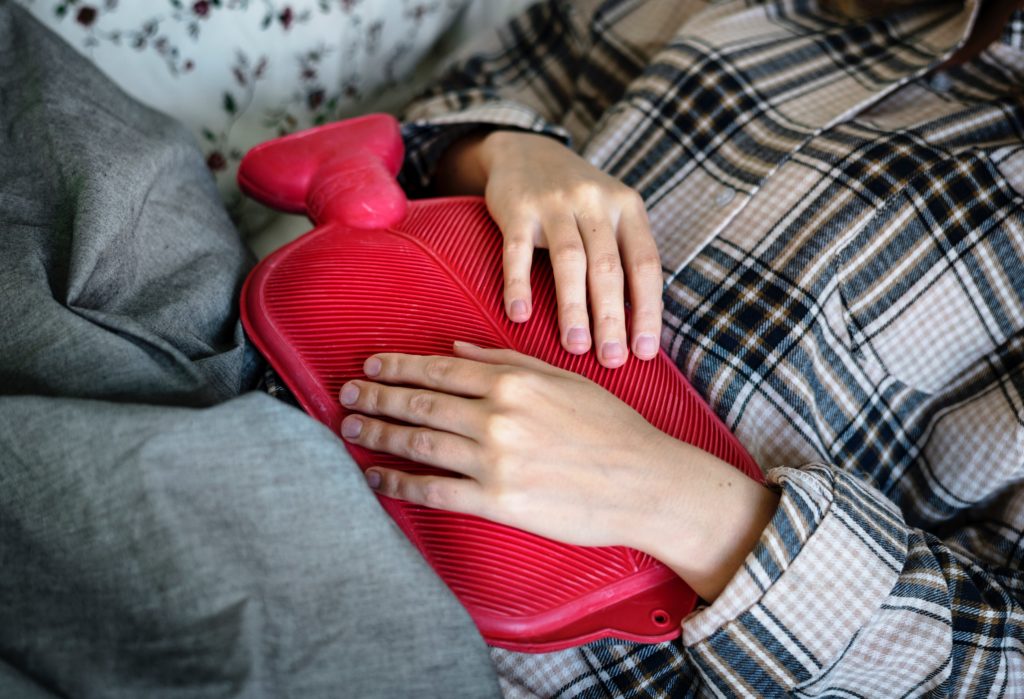Ulcerative Colitis is a chronic inflammatory condition characterized by relapsing and remitting episodes of inflammation limited to the mucosal layer of the colon. It almost always involves the rectum, and in some cases, it may extend to involve other portions of the colon in a continuous manner (i.e.: inflamed tissue forms a continuous patch of diseased tissue).

Depending on the symptoms Ulcerative Colitis is commonly classified into various sub-categories:
- In Ulcerative proctitis, inflammation is confined to the rectum, and for some people, rectal bleeding may be the only sign of the disease. Others may have rectal pain and a feeling of urgency. This form of Ulcerative Colitis tends to be the mildest;
- Proctosigmoiditis involves the rectum and the lower end of the colon, known as the sigmoid colon. Bloody diarrhea, abdominal cramps and pain, and an inability to move the bowels in spite of the urge to do so are commonly associated with Proctosigmoiditis;
- Left-sided colitis is defined by inflammation extending from the rectum up through the sigmoid and descending colon, which is located in the upper left part of the abdomen. Signs and symptoms include bloody diarrhea, abdominal cramping as well as pain on the left side, and unintended weight loss.
- Pancolitis affects the entire colon, and causes bouts of bloody diarrhea that may be severe, abdominal cramps and pain, fatigue, and significant weight loss.
- Fulminant colitis is the most severe, but rare form of Ulcerative Colitis. It is a life-threatening form of the disease that affects the entire colon and causes severe pain, profuse diarrhea and, sometimes, dehydration and shock. People with fulminant colitis are at risk of serious complications, including colon rupture and toxic megacolon, a condition that causes the colon to rapidly expand.
The exact causes of Ulcerative Colitis are still unknown. Established thinking focuses on two areas of origin:
First and foremost, the immune system, whereby the inflammation may stem from an autoimmune reaction or an overreaction of the intestinal immune system to a viral or bacterial trigger;
Second, heredity, whereby the genetic makeup may play a contributing role. However, while there are statistically significant cases, where the disorder affects relatives, most Ulcerative Colitis patients do not have a family history of this disorder.
In recent years the influence of intestinal microbial flora patterns and nutrition on Ulcerative Colitis has also been intensively discussed. The area of nutrition is where we at Total Diet Food can support Ulcerative Colitis sufferers.
Ulcerative Colitis Therapy
Current drug therapy options for Ulcerative Colitis are not curative. They only try to alleviate and prevent the symptoms of the disorder. Their goal is to switch acute inflammation phases to remission and to prolong the remissive state as long as possible.
Depending on the severity of the form of Ulcerative Colitis different therapy options are currently available:
- Aminosalicylates, and in particular Mesalazine, are the first line option for long term treatment to prolong remission (given orally, or rectally) and for mild to medium acute phases of Ulcerative Colitis (applied via suppository, or enema). Long term treatment with aminosalicylates may result in complications and in particular be harmful to patients’ kidneys.
- For severe acute phases of Ulcerative Colitis systemic treatment with corticosteroids is commonly applied. If the colitis does not respond to corticosteroids immunosuppressants (in most cases
Azathioprin ) are used. Due to severe sideeffects long term treatment with corticosteroids or immunosuppressants is not feasible.
- In cases of medium and severe acute Ulcerative Colitis, where standard therapy options fail or are not indicated due to adverse patient reactions, monoclonal antibodies against TNF-α (Remicade, Humira) are applied intravenously. Long-term treatment with such antibodies is not pursued due to high costs, potentially severe side effects, and danger of loss of clinical response.
- If no suitable therapeutic regimen is found, surgical resection of the affected area is the only remaining treatment option. Surgery is usually totally curative for UC patients, but commonly seen as a last resort for severe cases rather than standard therapy.
